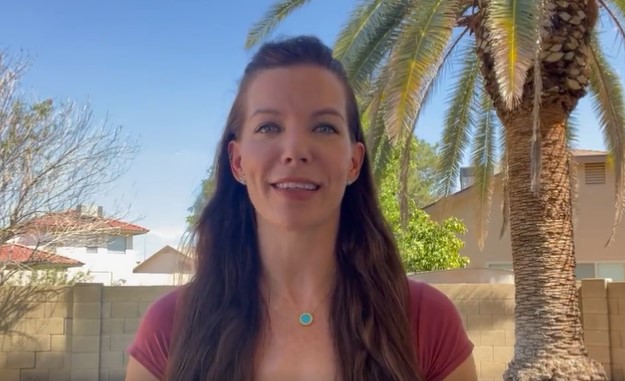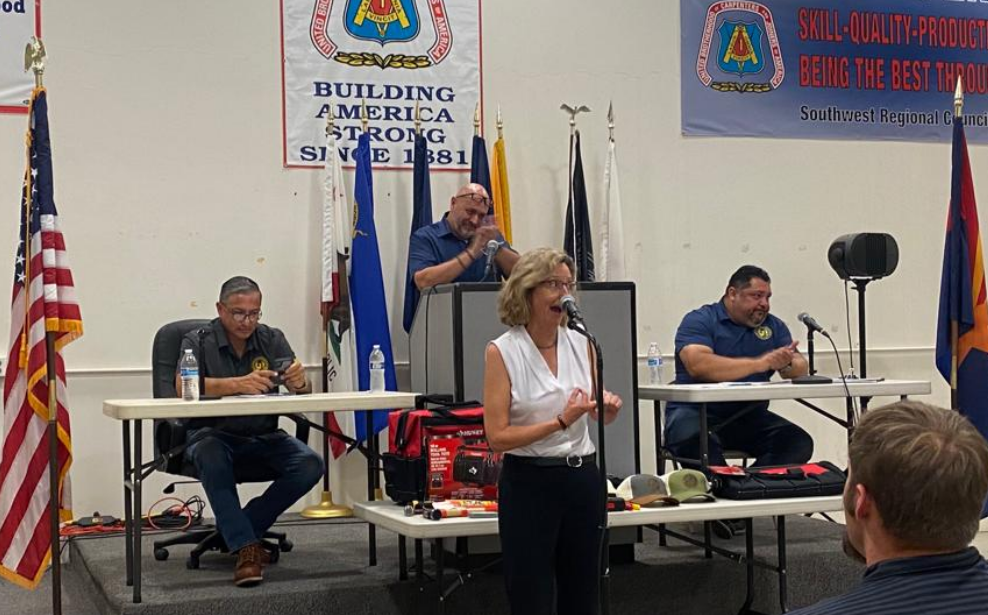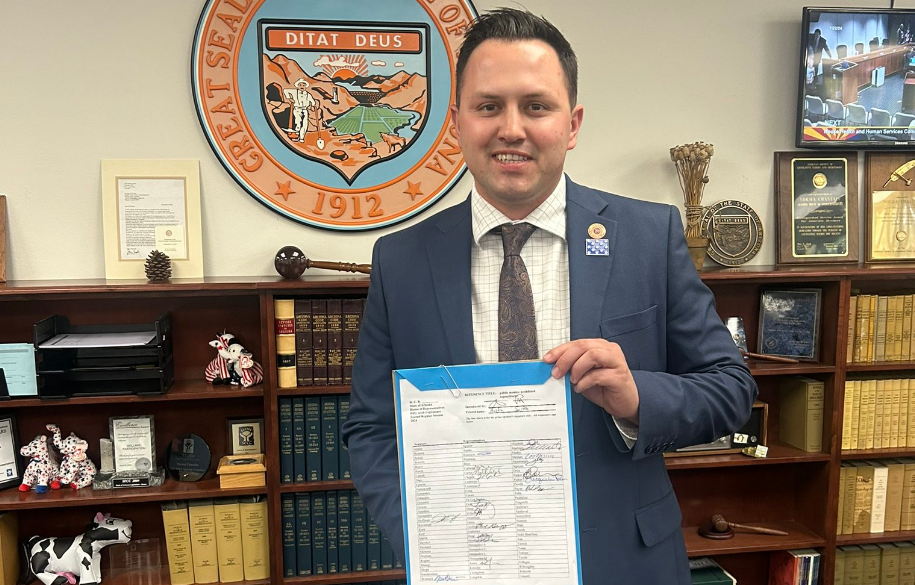
by Corinne Murdock | Jan 30, 2024 | News
By Corinne Murdock |
House Democrats believe that Americans who think the border is mismanaged are “confused.”
Democrats in the House Homeland Security Committee issued the remarks during a press conference on Monday addressing the newly-released articles of impeachment against Department of Homeland Security (DHS) Alejandro Mayorkas. Committee Republicans published the draft articles on Sunday.
Rep. Bennie Thompson (D-MS-02), ranking member, indicated that DHS was handling the border correctly and operating in line with the direction of President Joe Biden. Thompson noted that the greater concern for he and his Democratic colleagues was that the impeachment efforts were the cause of lost confidence in DHS and Mayorkas.
“Democrats are real concerned that this is just one of those efforts to confuse the public that something is going wrong at the Department of Homeland Security. Our secretary works at the direction of the president,” said Thompson. “This notion that in carrying out the directions of your boss somehow is an impeachable offense is wrong.”
House Minority Leader Hakeem Jeffries (D-NY-08) also spoke at the press conference. Jeffries claimed that it was “extreme MAGA Republicans” who were misleading the American public on the state of the border. Jeffries further claimed that House Republicans produced “no evidence” that Mayorkas committed an impeachable or unconstitutional offense.
“The extreme MAGA republicans have been directed by Donald Trump not to work together to address the challenges at the border and to instead distract the American people,” said Jeffries.
Rep. Dan Goldman (D-NY-10), another committee member, argued that Republicans caused the border crisis. Goldman claimed that the Biden administration implemented policies to streamline the asylum process, reduce the immigration case backlog, and a cessation of illegal immigration between ports of entry.
“The Republicans are literally trying to stop the administration from securing the border, while they are saying, and so they can say, that the administration is not securing the border,” said Goldman. “They are creating this situation and then they want to blame President Biden.”
Under the first few weeks of his administration, the country experienced an unprecedented deluge of illegal immigration after Biden reversed most of the border policies from his predecessor, former President Donald Trump.
As reported extensively throughout investigations published by the Homeland Security Committee and border agents on the ground, illegal immigrants and cartels have become increasingly emboldened to violate border and trafficking laws. Last week, smugglers assaulted a Border Patrol agent arresting several illegal immigrants.
Since Biden took office, there have been over 7.15 million illegal immigrant encounters at the southern border, and an unknown number of gotaways estimated in total to be around several million.
In the 2023 fiscal year, U.S. Customs and Border Protection (CBP) arrested over 35,400 illegal immigrants with criminal convictions nationwide, of whom nearly 600 were known gang members. Since the 2021 fiscal year, agents have arrested nearly 300 illegal immigrants on the terrorist watchlist.
The House Homeland Security Committee is scheduled to consider the articles of impeachment against Mayorkas on Tuesday at 8 am. The hearing will be streamed here.
Corinne Murdock is a reporter for AZ Free News. Follow her latest on Twitter, or email tips to corinne@azfreenews.com.

by Elizabeth Troutman | Jan 29, 2024 | Education, News
By Elizabeth Troutman |
Former Arizona state Senator Michelle Ugenti-Rita called on Rep. Jake Hoffman, founding chairman of the Arizona Freedom Caucus, to amend a bill involving sexually explicit materials in schools to include the Maricopa County Library District.
Senate Bill 1007 proposed by Hoffman, a Republican, makes it a class 5 felony for a public school to show a student sexually explicit materials or use it in the classroom in any way.
“I would like to encourage the bill sponsor, @JakeHoffmanAZ and my former colleagues to amend this bill to include the Maricopa County Library District since @ThomasGalvin won’t do anything to stop county libraries from facilitating a liberal woke agenda by promoting sexually graphic and sensitive material to children,” said Ugenti-Rita, a Republican who represented Arizona’s District 23 from 2019 to 2023.
The bill prohibits Arizona public schools to refer students to sexually explicit material unless “the material possesses serious educational value for minors or serious literary, artistic, political or scientific value” or “the public school requires written parental consent, on a per-material basis, before referring a student to or using the material.”
The public school must also provide students whose parents do not consent for them to see the material with an alternative assignment that does not contain sexually explicit material.
Sexually explicit materials include “textual, visual or audio materials or materials accessed via any other medium that depict sexual conduct, sexual excitement or ultimate sexual acts,” the bill says.
Charter schools can require parents to waive the right to object to learning materials or activities as a condition of enrollment if the charter school provides a comprehensive list of books and materials used for instruction each school year before the student enrolls.
The parent keeps the right to object to those materials if they are altered after the students’ enrollment.
Elizabeth Troutman is a reporter for AZ Free News. You can send her news tips using this link.

by Elizabeth Troutman | Jan 29, 2024 | News
By Elizabeth Troutman |
Former Arizona State Sen. Kirsten Engel received campaign funding from a liberal dark money group “fellowship,” the Washington Examiner uncovered.
Engel lists the American Mainstream Policy Leadership Institute, or AMPLI, fellowship on her University of Arizona profile page, but she did not respond to questions about why she didn’t disclose any payments from the group.
“What is Kirsten Engel hiding? Engel’s intimate involvement with these secretive left-wing forces orchestrating this unprecedented corrupt scheme is disturbing and Arizonans deserve answers immediately,” National Republican Congressional Committee Spokesperson Ben Petersen said in a statement.
Engel unsuccessfully ran for Congress in Arizona in 2022 against Republican Rep. Juan Ciscomani. She is running to unseat Ciscomani in 2024 in a district Cook Political Report calls a “Republican toss up.”
Engel’s financial disclosure report filed with the House clerk in August of last year did not disclose any income from the fellowship.
New Politics Leadership Academy, a charity that trains prospective candidates and has an affiliated advocacy group called New Politics 527 previously sponsored the AMPLI fellowship. New Politics also ran a similar one in 2019 which cut large checks to failed candidates, drawing legal scrutiny from campaign experts.
New Politics Leadership Academy has since moved on from the initiative, which was absorbed by Our American Future Foundation, or OAFF, a newly-formed charity incorporated in Washington, D.C., by an associate of Democratic superlawyer Marc Elias, according to documents obtained by the Washington Examiner.
New Politics Leadership Academy’s partnership with AMPLI only lasted for one month, New Politics spokesman Gabe Ramos told the Washington Examiner. Ramos indicated tension between the two groups.
“The fellowship was never our thing,” Ramos said in an interview with the Washington Examiner, describing how New Politics Leadership Academy ran a one-time 2019 fellowship, though, in October 2022, began sponsoring a project called the American Mainstream Policy Leadership Institute that offers a revamped version.
Our American Future Foundation’s involvement with the fellowship could have legal implications due to the legal scrutiny New Politics Leadership Academy faced in recent years over pushing thousands of dollars to candidates, the Examiner reported.
Tax experts have questioned whether New Politics Leadership Academy may have violated its charity status by compensating congressional hopefuls. The Federal Election Commission received at least one formal complaint against a candidate in 2020 regarding the candidate being “paid to run for Congress by Democratic groups,” including New Politics Leadership Academy.
In 2022, the FEC voted to dismiss the complaint.
New Politics has claimed it’s bipartisan, though the vast majority of the candidates it has supported have been Democrats, the Washington Examiner reported.
Little information is available online about AMPLI or OAFF.
Ramos, the New Politics spokesman, agreed it’s odd there is such little information on the internet about both AMPLI and OAFF.
“By design I suspect,” he told the Washington Examiner.
Elizabeth Troutman is a reporter for AZ Free News. You can send her news tips using this link.

by Daniel Stefanski | Jan 28, 2024 | News
By Daniel Stefanski |
Arizona Senate Republicans have a plan to mitigate the effects of the crisis at the southern border.
On Wednesday, Senate Republicans held a press conference to announce their proposals to “provide law enforcement the support they need to defend our citizens against these threats.”
One of the bills Republicans will seek to pass through the legislature, the Arizona Border Invasion Act, is sponsored by Senator Janae Shamp. According to the Senate Republicans’ news release, this legislation would grant local, county, or state law enforcement officers the statutory authority to make arrests of three categories of individuals:
- any non-US citizens who enter [Arizona] from anywhere but a lawful entrance point
- any non-US citizens who have been denied entry, or have already been removed from [the United States]
- any non-US citizens who have been ordered to leave because of one of the above crimes but are refusing to comply with the order.
The other bill highlighted by Republicans was Senator David Gowan’s Aggravated Unlawful Flight Act, which would “create tougher penalties for drivers who endanger the life of another person while attempting to flee law enforcement, prompting a high-speed chase.” Additionally, Senator Gowan’s bill would “create greater penalties against drivers who cause harm to another person during a high-speed chase, or those who are transporting a child under the age of 15.”
“Joe Biden and his administration have made it unequivocally clear that they have abandoned their duties to enforce immigration policy at the federal level,” said Senator Shamp. “As a result, our communities and our citizens are suffering the dire consequences of the lawlessness associated with tens of thousands of people, many of whom are criminals, illegally entering our state each month with no repercussions. It is our duty as state legislators to ensure the safety of our citizens and our law enforcement, which is why I’m calling on my colleagues on both sides of the aisle to support this commonsense legislation.”
“This is the worst border crisis in U.S. history. Our local sheriffs are overwhelmed, outnumbered, and their lives are in danger,” said Senator Gowan. “Our communities are suffering from the deadly fentanyl, rapes, murders, high-speed chases, kidnappings, human smuggling, child sex trafficking, and other heinous crimes carried out by those who are entering our state illegally. We can’t just sit idly by and watch Biden’s border invasion destroy Arizona. I’m urging members of the Legislature to pass our bills and for the Governor to sign them. Lives are on the line, and the hands of our local law enforcement are currently tied.”
Both Republicans and Democrats realize the importance of dealing with the historic crisis at the border, though members of both parties generally have vastly different opinions about the solutions. At the start of this new legislative session, the border was a central theme in Governor Katie Hobbs’ State of the State address. Hobbs asserted that she “delivered on multiple fronts to help mitigate the crisis, including the launch of Operation SECURE and the creation of a Border Coordination Office within the Arizona Department of Homeland Security.
Senate President Warren Petersen and House Speaker Ben Toma immediately released a video in the aftermath of the governor’s address, responding to the issues she raised to onlooking legislators. Toma argued that despite Hobbs’ attempt to make Arizonans “believe she’s all about securing our border and ending the lawlessness caused by Joe Biden’s immigration system…her record is one of open borders…and she’s continued that approach as governor.” Petersen talked about “major mistakes” from Hobbs by vetoing three bills in particular “that would have kept families safe from drugs and crime.”
During 2023, the first year of a rare, divided government in the Grand Canyon State, legislative Republicans consistently pointed out that the reality with the border crisis could have been more daunting for Arizonans if not for their check on Democrats. When Hobbs signed the state budget compromise in May, Petersen noted his members “prevented the Governor and Democrat Legislators from advancing their extremist agenda,” and promised “we’re not getting rid of state-funded border security resources to keep our communities safe.” Despite Hobbs’ efforts to be perceived as taking the border crisis seriously in the new year, she is unlikely to work with legislative Republicans on much – if any – fixes to help mitigate the lawlessness and consequences for affected communities, likely spelling doom for the two recently introduced border bills should the legislature send the proposals to the Governor’s Office.
Daniel Stefanski is a reporter for AZ Free News. You can send him news tips using this link.

by Daniel Stefanski | Jan 28, 2024 | News
By Daniel Stefanski |
One of Arizona’s State Representatives is working to increase transparency from certain foreign agents.
Republican State Representative Matt Gress, entering his second year in office, sponsored HB 2506, the State Foreign Agents Registration Act (FARA). House Majority Leader Leo Biasiucci is a co-sponsor of the legislation.
According to Gress’ press release, the bill would “require transparency from foreign agents acting on behalf of adversarial countries within Arizona,” forcing these individuals to “register with the Arizona Attorney General’s Office.” Under the federal FARA, there are exceptions for “commerce, religious activities, research, or education;” those would be removed under this new proposal. There would be penalties for any foreign agents who failed to comply with the requirements.
In a statement released in conjunction with his announcement, Gress said, “I am proud to sponsor the State Foreign Agents Registration Act as a crucial step towards safeguarding our democracy. While the federal FARA has its merits, our state legislation aims to close existing loopholes that have allowed foreign agents to operate unnoticed. As foreign nations increasingly attempt to exert influence on American soil, it is important that we take proactive measures to ensure we protect Arizonans from efforts to compromise our freedom and security.”
The press release added that HB 2506 “would help protect U.S. citizens and foreign nationals residing in Arizona from foreign agents acting on behalf of countries such as China, Russia, and Iran who seek to impose their authoritarian rule domestically.”
There are no individuals or organizations that have yet indicated support or opposition for the bill on the Arizona Legislature’s Request to Speak system.
Daniel Stefanski is a reporter for AZ Free News. You can send him news tips using this link.

by Daniel Stefanski | Jan 28, 2024 | News
By Daniel Stefanski |
An Arizona Republican legislator is looking to present voters with an upcoming opportunity to help protect their state’s sovereignty.
Earlier this week, freshman State Representative Austin Smith announced that he had introduced HCR 2040, which is a concurrent resolution to enact and order “the submission to the people of a measure relating to public monies.”
In a comment to AZ Free News, Smith said, “The public policy of this state, political subdivisions, and universities should be – public monies are not spent to join organizations that promote anti-freedom agendas listed in HCR2040. This HCR aims at the heart of what the World Economic Forum and the UN Climate Council are working to implement globally. HCR2040 is about protecting freedom. Period.”
The definition of the prohibited expenditures of public monies was laid out in the bill, as follows:
1. REDUCING THE CONSUMPTION OR PRODUCTION OF MEAT OR DAIRY PRODUCTS OR REPLACING ANIMAL-BASED PROTEIN WITH INSECT OR SYNTHETIC PROTEIN.
2. REDUCING OR REPLACING MOTOR VEHICLE TRAVEL WITH WALKING, BIKING, OR PUBLIC TRANSIT.
3. REDUCING OR LIMITING TRAVEL BY AIRPLANE.
4. LIMITING THE NUMBER OF ARTICLES OF CLOTHING AN INDIVIDUAL MAY PURCHASE OR OWN.
5. REUSING WATER THAT HAS TOUCHED HUMAN FECES AS A SOURCE OF MUNICIPAL DRINKING WATER.
6. REDUCING GREENHOUSE GAS EMISSIONS OR TRACKING AND COLLECTING OF ANY INFORMATION OR DATA FOR DETERMINING CONSUMPTION-BASED EMISSIONS.
7. LIMITING THE INCREASE OF THE AVERAGE GLOBAL TEMPERATURE OR PRODUCING OR ADOPTING A CLIMATE ACTION PLAN.
8. REPLACING PRIVATE OWNERSHIP WITH SHARED OR RENTED GOODS AND SERVICES TO PROMOTE A CIRCULAR ECONOMY.
9. FURTHERING MARXIST IDEOLOGIES, INCLUDING STAKEHOLDER CAPITALISM.
10. IMPLEMENTING MASS SURVEILLANCE SYSTEMS TO MONITOR MOTOR VEHICLE TRAVEL.
The resolution was cosponsored by Representatives Biasiucci, Carbone, Carter, Chaplik, Diaz, Dunn, Gillette, Griffin, Heap, Hendrix, Jones, Marshall, Martinez, McGarr, Montenegro, Parker, Parker, and Payne; as well as by Senators Hoffman and Wadsack.
If the resolution were to pass the Arizona House and Senate, it would be transmitted to the Secretary of State to be offered to the voters in the November General Election.
Daniel Stefanski is a reporter for AZ Free News. You can send him news tips using this link.






